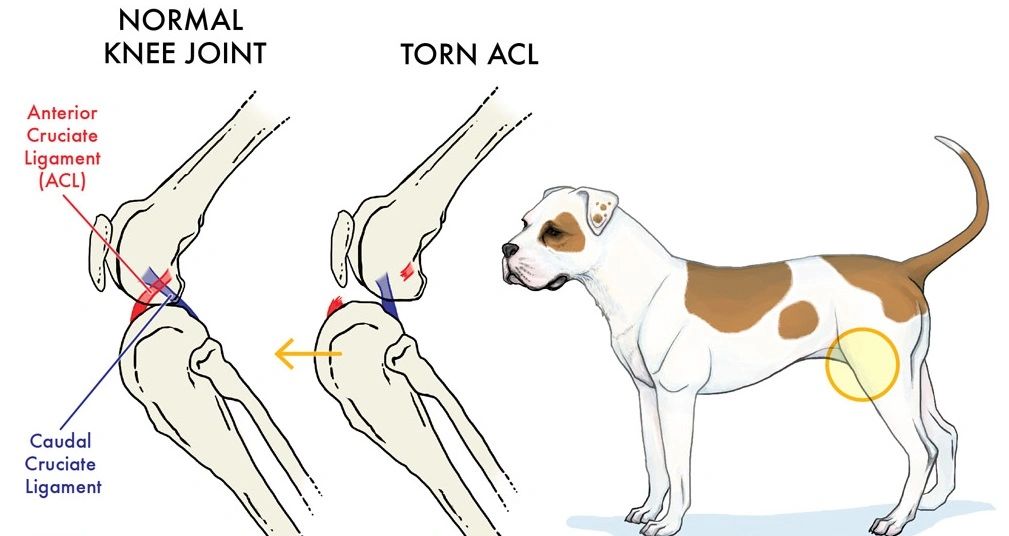

The doses vary depending on pain levels, and your dog's body weight and body condition. Different groups of NSAIDs are used in ACL treatment. The anti-inflammatory drug will relieve your dog's pain during the observation period. Non-steroidal anti-inflammatory medications (NSAIDs) are sometimes helpful to heal the torn ligament. Due to lowered pressure on knee joint, your dog will be able to heal its ligament faster.Please consult with your vet to get an appropriate exercise list based on the clinical condition of your dog.If your dog has a severely torn ACL, specialized hydrotherapy (walking/swimming in water) is recommended.In the case of a severe ACL injury with inflammation, exercise should be postponed until after you give your dog some NSAIDs to reduce pain.The exercise may include walking or running. Be sure include regular, but non-vigorous, exercise for your dog.Make sure to monitor the outcome of your weight reducing program regularly. To minimize any digestive upset, try to ease your dog into the new diet gradually.Don't reduce the calorie intake suddenly, but rather feed your dog smaller portions more throughout the whole day.


To reduce the body weight of your dog, decrease its calorie intake at least 60%.Try lowering your dog's body weight with a combination of diet and exercise. You can easily accelerate your dog's healing process by reducing the body weight of your dog. High body weight is a risk factor and a leading cause of ACL injury, because of the extra stress placed on the ligament by an overweight body. The ACL is meant to stabilize the leg and provide support during weight bearing activities. Heal your dog's torn ACL ligament by reducing its body weight. This article has been viewed 434,274 times. This article received 22 testimonials and 100% of readers who voted found it helpful, earning it our reader-approved status. WikiHow marks an article as reader-approved once it receives enough positive feedback. He is also a Certified Canine Rehabilitation Therapist (CCRT) through the Canine Rehab Institute as well as a Certified Veterinary Acupuncturist (CVA) through Chi University. Spragley holds a BS in Biology from SUNY Albany and has a Doctor of Veterinary Medicine degree (DVM) from Ross University School of Veterinary Medicine. Spragley’s specializations and interests include non-surgical management of cranial cruciate ligament tears, Intervertebral Disk Disease(IVDD), and pain management in osteoarthritis. With experience in multiple institutions and private practices, Dr. Ray Spragley is a Doctor of Veterinary Medicine and the Owner/Founder of Zen Dog Veterinary Care PLLC in New York. This article was co-authored by Ray Spragley, DVM.


 0 kommentar(er)
0 kommentar(er)
